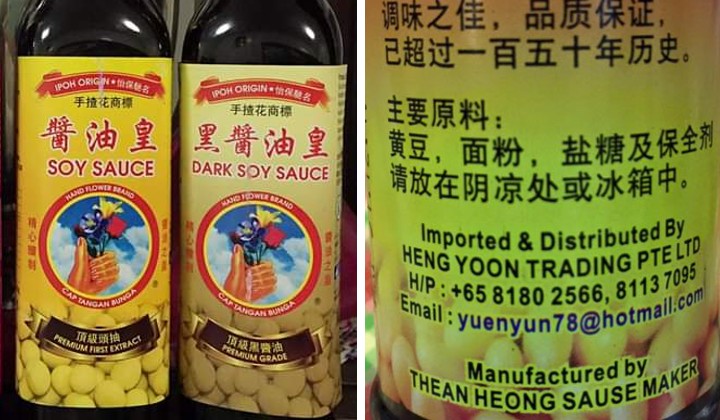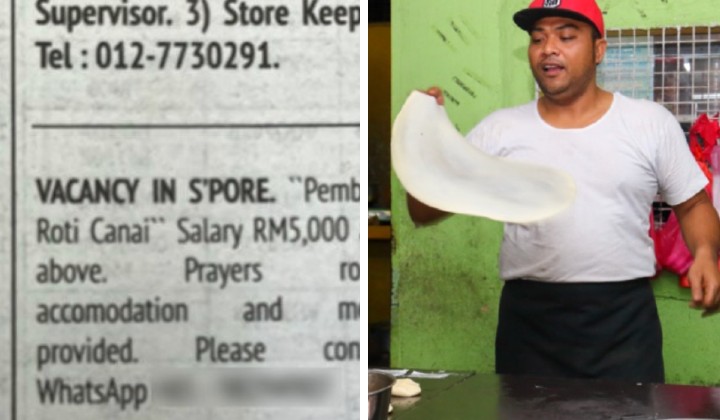Singapore Recalls Malaysian Soy Sauce From Ipoh Due To Excessive And Undeclared Substance
The Singapore Food Agency has ordered a recall as the benzoic acid level exceeded permitted levels.

Subscribe to our Telegram channel for the latest stories and updates.
A Malaysian soy sauce brand sold in Singapore been recalled by the Singapore Food Agency (SFA).
Food recalls are removals of foods from the market that violate the regulations set by the authorities.
The brand in question is Hand Flower, which is from Ipoh.
The product is said to contain benzoic acid that had exceeded the regulatory limit.
Benzoic acid is a common food preservative.
SFA added that the use of benzoic acid was also not stated on the food packaging label.
SFA noted that one-off consumption of the affected product is unlikely to be a food safety concern.
However, there’s a risk when people consume food with high levels of benzoic acid over a prolonged period.
This is because even though benzoic acid is a common additive which is safe when used in small quantities, studies in animals fed with high doses of benzoic acid have shown disorder of the central nervous system as well as changes in their brains.
SFA on the danger of eating food with excessive levels of benzoic acid.
The agency had previously recalled food items which were also found to contain benzoic acid.
[Food Recall]
— Singapore Food Agency (SFA) (@SGFoodAgency) March 10, 2022
SFA has detected benzoic acid, a food additive, in kueh products manufactured by K & B Nonya Kueh Manufacture Pte. Ltd and Beng San Food Industry Pte. Ltd.
Read more: https://t.co/RhHhYJe0xf pic.twitter.com/umkLm1ewkA
The product’s importer in Singapore, Heng Yoon Trading, is currently recalling the affected product and has issued a notice on social media.
The recall applies to all Hand Flower brand soy sauce with the batch number KSS0 125 and the best-before date of 26 July 2025.
Why Is Benzoic Acid Used In Food?
Benzoic acid inhibits the proliferation of bacteria and yeasts, a significant cause of food spoilage.
Some natural benzoic acid sources include apricots, prunes, berries, cranberries, peaches, kiwis, bananas, watermelons, pineapples and oranges.
It is approved for use in many countries and is generally recognized as safe in foods according to the U.S. Food and Drug Administration.
When not being used as snow, benzoic acid is often used as a food preservative. It can also be used in cosmetics, dyes, plastics and insect repellent! Very versatile!#christmasscience#ChristmasCountdown #Christmas #Christmas2020 #ChristmasIsComing #AdventCalendar #chemistry pic.twitter.com/zLngEkCgUD
— Louise Mc Grath (@LouiseMcGrath91) December 11, 2020
While low exposure to benzoic acid appears to be non-toxic overall, consuming a high amount may be poisonous.
However, it would be difficult to consume so much of it in foods (both natural and processed) that it would be lethal.
Exposure to benzoic acid in high concentrations, particularly in susceptible individuals, may cause a skin allergy.
If you think you or someone you know became sick from eating a particular food, contact your local health department.
Share your thoughts with us via TRP’s Facebook, Twitter, and Instagram.





